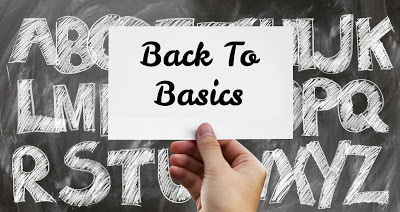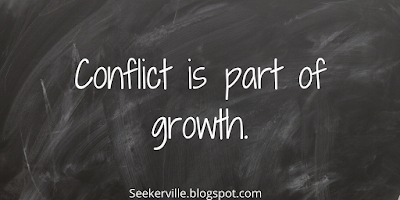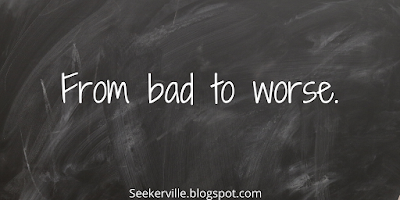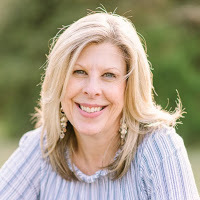Revisiting Conflict
 by Mindy Obenhaus
by Mindy ObenhausOnce again, as I contemplate what to post, I'm asking myself where I'm at in my writing right now. What am I struggling with? Well, as I close in on the end of my WIP I'm wondering if I have enough conflict. Then I recalled a post I'd done on conflict a couple of years ago. So rather than retelling, I thought I'd simply share that post again. So here we go.
Conflict. The word alone is enough to make us squirm. Most of us avoid conflict at all costs. Then you become a writer and they say you must have conflict.
Noooo…
The reality is that a story without conflict is, well, boring. If Cinderella’s stepmother and stepsisters had helped her with her chores so she could get ready for the ball, we would’ve had no reason to cheer Cinderella on to victory. If the yellow-brick road hadn’t been plagued with flying monkeys and the wizard hadn’t told Dorothy to bring him the broom of the wicked witch, Dorothy would have kept moping, never realizing that home was a pretty special place after all.
Of course, conflict doesn’t always come in the form of a villain. Conflict is anything that stands in the way of a character achieving their goal. Have you ever been late for an appointment because you were stuck in traffic? And how many horrible scenarios ran through your head before you got to said appointment? Only to find out that the person you were meeting with was stuck in the same traffic.
 Conflict is a part of growth. It teaches us to leave extra early for those important appointments. It forces one to look within themself to realize that maybe they can love again. And conflict encourages us to turn to God and allow Him to give us the strength we need to overcome something we think is impossible. Such as adding conflict.
Conflict is a part of growth. It teaches us to leave extra early for those important appointments. It forces one to look within themself to realize that maybe they can love again. And conflict encourages us to turn to God and allow Him to give us the strength we need to overcome something we think is impossible. Such as adding conflict.
So how do we how do we create conflict?
Since we're still warming up to conflict, let's keep things simple.Know your character’s goal – While characters have an overarching goal in a story, each and every scene also needs a goal, motivation and conflict. Start by asking yourself what the character’s goal is in any given scene.Keep them from reaching that goal – Say their goal is to make it to the bank before it closes. What will happen if they don’t? Will a check bounce? Will their house be foreclosed on? And what if there’s a traffic accident along the way that prevents them from getting there? See how those small things can all work together to create conflict for your character?
 Take things from bad to worse – In his book Writing the Breakout Novel, Donald Maass says to ask yourself, "What is the worst thing that can happen to your character at that moment?" Then he says to find a way to make it happen. I’ll admit, I kind of blew that one off for a while. But then I tried it and not only did it work, it's now my go-to weapon for adding conflict. Here's an example from the story I'm currently working on. When the heroine deserts the hero, leaving him to tackle a two-person job by himself, he jumps in her stuff, accusing her of taking advantage of him. Naturally, she's indignant. He didn't even give her chance to explain. Yet as she's stewing about his behavior, she finds herself acknowledging that even though she thought they were finished, she really just wanted to get away from him because she's attracted to him and doesn't want to be. So, what's the worst thing that can happen? She realizes she was in the wrong and that she needs to apologize. Yet just when she's about to do just that, her parents arrive, trying to talk her into selling the Christmas tree farm she's inherited. But she loves the place and wants to convince her parents she's doing the right thing. But while she's showing them the farm, hoping to overcome their objections and impress them with her extensive plans, the hero comes back. Is he still angry? Will he make her look bad in front of her parents, confirming their opinion that she's being foolish? Okay, that was a very rough scenario, but I hope you were able to see how each of those little things--realizing she was the one in the wrong, her folks arriving, preventing her from apologizing, and then the hero coming back before she's had a chance to apologize--only add to the heroine's conflict.Conflict helps refine our characters which then enriches the story. Conflict can bring out the best or the worst in people. It shows them and the reader what they’re really made of. What's important to them. Conflict can humble a person. And it is an essential part of every story.
Take things from bad to worse – In his book Writing the Breakout Novel, Donald Maass says to ask yourself, "What is the worst thing that can happen to your character at that moment?" Then he says to find a way to make it happen. I’ll admit, I kind of blew that one off for a while. But then I tried it and not only did it work, it's now my go-to weapon for adding conflict. Here's an example from the story I'm currently working on. When the heroine deserts the hero, leaving him to tackle a two-person job by himself, he jumps in her stuff, accusing her of taking advantage of him. Naturally, she's indignant. He didn't even give her chance to explain. Yet as she's stewing about his behavior, she finds herself acknowledging that even though she thought they were finished, she really just wanted to get away from him because she's attracted to him and doesn't want to be. So, what's the worst thing that can happen? She realizes she was in the wrong and that she needs to apologize. Yet just when she's about to do just that, her parents arrive, trying to talk her into selling the Christmas tree farm she's inherited. But she loves the place and wants to convince her parents she's doing the right thing. But while she's showing them the farm, hoping to overcome their objections and impress them with her extensive plans, the hero comes back. Is he still angry? Will he make her look bad in front of her parents, confirming their opinion that she's being foolish? Okay, that was a very rough scenario, but I hope you were able to see how each of those little things--realizing she was the one in the wrong, her folks arriving, preventing her from apologizing, and then the hero coming back before she's had a chance to apologize--only add to the heroine's conflict.Conflict helps refine our characters which then enriches the story. Conflict can bring out the best or the worst in people. It shows them and the reader what they’re really made of. What's important to them. Conflict can humble a person. And it is an essential part of every story.Writers, do you struggle with conflict or look forward to it? Readers, how do you feel about the push and pull of conflict in stories? Often, it’s what keeps you reading. Which is a good thing, unless you have to get up early and you just can’t put the book down. Then you have a conflict.
 Award-winning author Mindy Obenhaus is passionate about touching readers with Biblical truths in an entertaining, and sometimes adventurous, manner. She lives on a ranch in Texas with her husband, two sassy pups, countless cattle, deer and the occasional coyote, mountain lion or snake. When she's not writing, she enjoys spending time with her grandchildren, cooking and watching copious amounts of the Hallmark Channel. Learn more at www.MindyObenhaus.com
Award-winning author Mindy Obenhaus is passionate about touching readers with Biblical truths in an entertaining, and sometimes adventurous, manner. She lives on a ranch in Texas with her husband, two sassy pups, countless cattle, deer and the occasional coyote, mountain lion or snake. When she's not writing, she enjoys spending time with her grandchildren, cooking and watching copious amounts of the Hallmark Channel. Learn more at www.MindyObenhaus.com
Published on March 01, 2022 22:00
No comments have been added yet.



